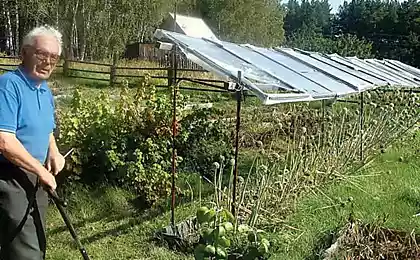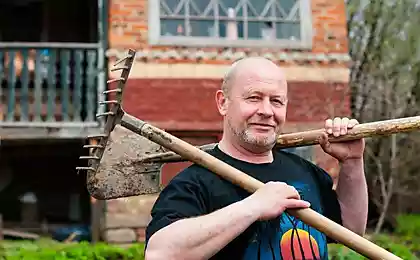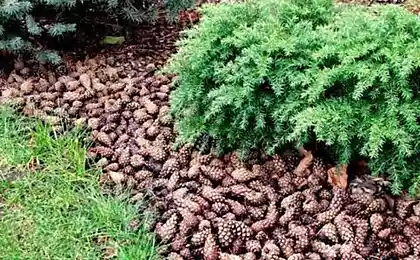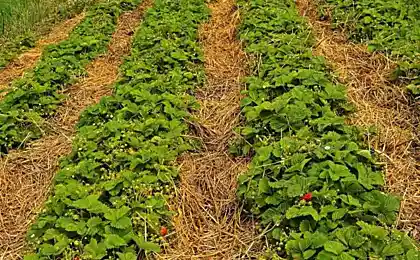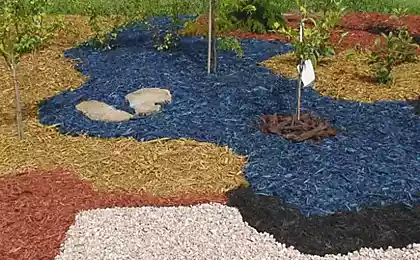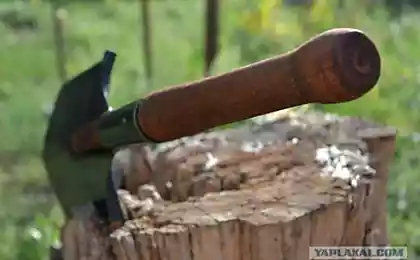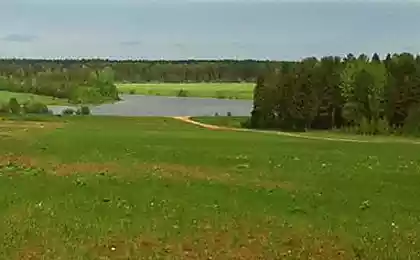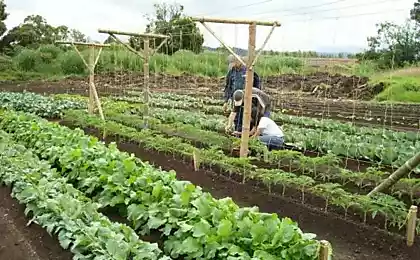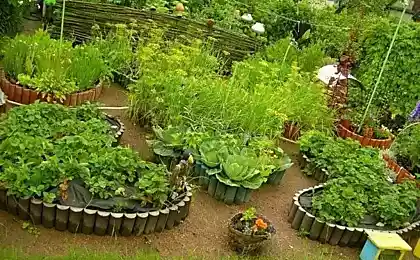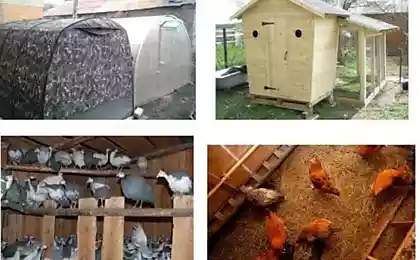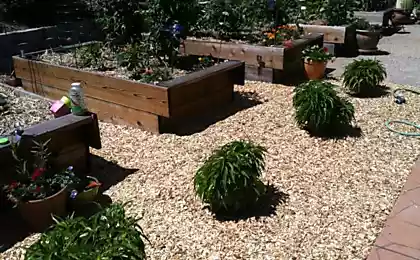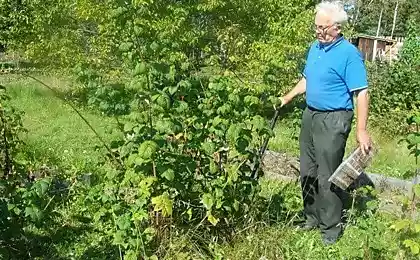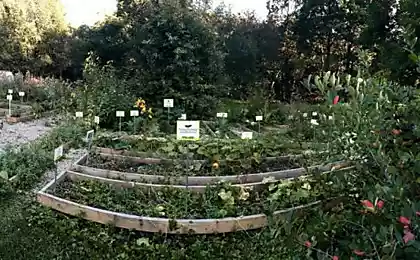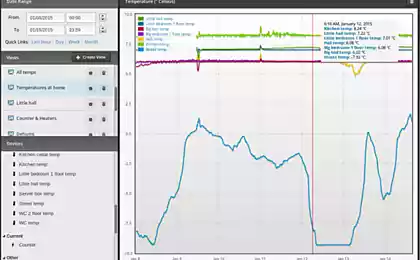730
Smart garden Zamyatkina: land doesn't know a shovel for 20 years
The historical village Shushenskoe — Bank of the Yenisei. Soil — poor, sandy loam, in summer it gets higher than +35° in winter to -45°, a little snow. Every second year the severe drought. On arable fields, burns out bread, potatoes did not give birth to her and not a dig. And at this time, Zametkin consistently and effortlessly collects the five-time yields.
Plot Zamyatkina doesn't know a shovel for about twenty years. According to him, in ten years the topsoil was deepened up to 30-40 cm Soil became so loose that the stakes for tomatoes do not need to drive — easy stuck. The potato crop of close to two hundred tons. Cabbage a pound or two a heads — up to 1800 kg with a weave. Yields of cabbage, carrots — three times-five times above average, plenty of fruit berries.
Neither manure, nor much less compost Zametkin not use. From fertilizer — only ash. Now in his garden, in his words, the true fertile agrozem. This means that the marginal yield is guaranteed in any year.
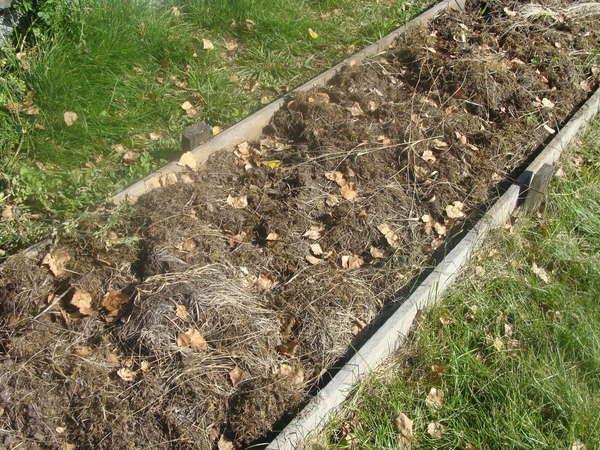
HOW DOES HE DO IT?
Of course, the third increase gives variety agricultural: Slatkin selected the best varieties for yourself and just stick with them. But two-thirds of success — the system of the natural garden: narrow beds, no plowing, sowing of green manure, reasonable rotation, mulching.
"The harvest is not a problem. Rakotomanga seems to be ill. Now my goal is limit natural fertility and sustainable agro-biocenosis".
BEDS.
The beds have Zamyatkina stationary, width 80 cm, with aisles at least one meter. They are born so. In the first half of June lush grass pritoptyvaya. She leans thick, pastika, a layer of different vegetable organic matter. And on top of the two fingers of land. The perfect garden: the weeds will not be released, and breathes, to rather him rot, and worms home. And lies until late summer. In August, it is cold-resistant green manure is sown: mustard oil radish. And in the spring — peas, beans, beans: let more soil to fertilize. With them begins the rotation. And if the soil is good, you can plant watermelons, and potatoes.
Caring for garden beds-only plane, and only superficially. All summer — mulch, spring and autumn green manure crops. Problem weeds have disappeared along with the hollow earth. When in the garden permanently or dense culture, or mulch, or dense green manure where I live the weeds when their niche is occupied? And they quietly exist, not Picasa on mass and borzost.
THE DISEASE IS ALSO GONE.
Zametkin has introduced into practice the smartest technique — the elimination of the morning dew. Puts over beds simple film screens. Heat rays are reflected back on the bed — all rosy, no! Hidden so just what tend to get sick: onions, tomatoes, cucumbers, potatoes.
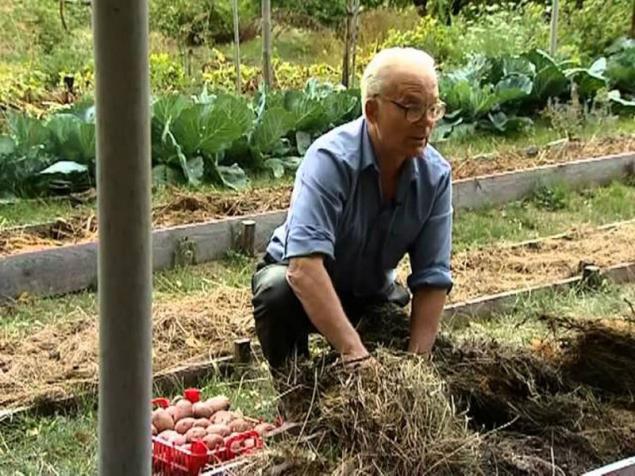
Mulch Zamyatkina have the same content of the soil as a green manure.
He hardly spends time and energy on the workpiece of organic matter. A thick layer separately harvested "hay" is only used for special purposes: to create new beds to smother weeds, cover tree trunks circles seedlings. But on the ground the whole year is a natural, "green manure mulch".
The technology is simple. In August under the rake sown some kind of cold-resistant green manure, and before the frost gives a dense green mass. Not allowing her to tie the seeds, cut it with a sharp shovel. It turns out the layer of hay. In the spring it is three times thinner: compacted, partially sopel. Programem it clean grooves, they sow and plant. Plants stood rezopolis — all soil covered.
Winter rye is usually not freezes and spring gets under way in growth. This "mulch" is necessary to cut below the tillering node, otherwise it will grow back.
Option: green manure is not cut off, freezes, and in April a garden bristling with straw. Also effective mulch from wind and frost covered. Directly it hit the hole or cut rows. Later it break and laid on a bed.
MULCH CAN BE ANY ORGANIC MATTER, THE MAIN THING THAT SHE WAS.
The experiments showed that under a thick layer of vegetation dust and straw grows great potatoes. In recent years, Zametkin so it grows. Spread seeds on a bed, piled loose organic matter, at need helped to get the seeds and got all finally. In August lifted the mulch under her clean the tubers, though right in the pot.
And that is typical: wireworms, the larvae of the may beetle and other beetles in the mulch are not found. Apparently, do not risk to rise from the soil: too many here do not eat off of them. Right or wrong, but for many years under the straw all tubers are clean and undamaged. And the soil will bury — a nibbled.
Rules of organic mulches is simple. In autumn, cover the soil as early as possible — even if it lives longer and later chilled. And in the spring, on the contrary, first sgravi coarse mulch on the tracks: let the soil thaw out and warm up.
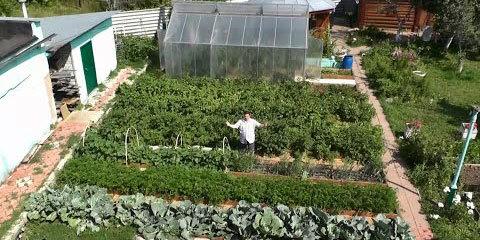
What is not only harboring gardeners seedlings to take root! And still dry. Zametkin, as always, looked to nature — and there all is already invented. The snow came down — sow phacelia. At the time of landing — carpet covering. Breaks through the hole and planting. Comfort, penumbra — seedling thing. Wags and freezing — easy to throw the tape directly on the green manure. Went in seedling growth was closely — cut and put a green manure, as mulch.
Also a useful Lawn in Russian: 4 simple variant of landing
How to save tomatoes from late blight without chemicals
NOW EVERYTHING IS CLEAR!
Mulch — the concept of multi-storey and multi-faceted. Speaking about the protection of soil and seedlings, it is difficult to draw a clear boundary between the layer of sawdust, dead grass, dry stalks... cedar elfin wood, bushes, trees. Forest and steppe — the "mulch" of the planet. In the forest litter and turf and live lice crawling with worms, and the layer of forests, gardens and parks — you and me. But imagine your garden and the forest cleared. "The soil is bare month — the month she is dying," says Slatkin. published
P. S. And remember, only by changing their consumption — together we change the world! ©
Join us in Facebook , Vkontakte, Odnoklassniki
Source: www.ecology.md
Plot Zamyatkina doesn't know a shovel for about twenty years. According to him, in ten years the topsoil was deepened up to 30-40 cm Soil became so loose that the stakes for tomatoes do not need to drive — easy stuck. The potato crop of close to two hundred tons. Cabbage a pound or two a heads — up to 1800 kg with a weave. Yields of cabbage, carrots — three times-five times above average, plenty of fruit berries.
Neither manure, nor much less compost Zametkin not use. From fertilizer — only ash. Now in his garden, in his words, the true fertile agrozem. This means that the marginal yield is guaranteed in any year.

HOW DOES HE DO IT?
Of course, the third increase gives variety agricultural: Slatkin selected the best varieties for yourself and just stick with them. But two-thirds of success — the system of the natural garden: narrow beds, no plowing, sowing of green manure, reasonable rotation, mulching.
"The harvest is not a problem. Rakotomanga seems to be ill. Now my goal is limit natural fertility and sustainable agro-biocenosis".
BEDS.
The beds have Zamyatkina stationary, width 80 cm, with aisles at least one meter. They are born so. In the first half of June lush grass pritoptyvaya. She leans thick, pastika, a layer of different vegetable organic matter. And on top of the two fingers of land. The perfect garden: the weeds will not be released, and breathes, to rather him rot, and worms home. And lies until late summer. In August, it is cold-resistant green manure is sown: mustard oil radish. And in the spring — peas, beans, beans: let more soil to fertilize. With them begins the rotation. And if the soil is good, you can plant watermelons, and potatoes.
Caring for garden beds-only plane, and only superficially. All summer — mulch, spring and autumn green manure crops. Problem weeds have disappeared along with the hollow earth. When in the garden permanently or dense culture, or mulch, or dense green manure where I live the weeds when their niche is occupied? And they quietly exist, not Picasa on mass and borzost.
THE DISEASE IS ALSO GONE.
Zametkin has introduced into practice the smartest technique — the elimination of the morning dew. Puts over beds simple film screens. Heat rays are reflected back on the bed — all rosy, no! Hidden so just what tend to get sick: onions, tomatoes, cucumbers, potatoes.

Mulch Zamyatkina have the same content of the soil as a green manure.
He hardly spends time and energy on the workpiece of organic matter. A thick layer separately harvested "hay" is only used for special purposes: to create new beds to smother weeds, cover tree trunks circles seedlings. But on the ground the whole year is a natural, "green manure mulch".
The technology is simple. In August under the rake sown some kind of cold-resistant green manure, and before the frost gives a dense green mass. Not allowing her to tie the seeds, cut it with a sharp shovel. It turns out the layer of hay. In the spring it is three times thinner: compacted, partially sopel. Programem it clean grooves, they sow and plant. Plants stood rezopolis — all soil covered.
Winter rye is usually not freezes and spring gets under way in growth. This "mulch" is necessary to cut below the tillering node, otherwise it will grow back.
Option: green manure is not cut off, freezes, and in April a garden bristling with straw. Also effective mulch from wind and frost covered. Directly it hit the hole or cut rows. Later it break and laid on a bed.
MULCH CAN BE ANY ORGANIC MATTER, THE MAIN THING THAT SHE WAS.
The experiments showed that under a thick layer of vegetation dust and straw grows great potatoes. In recent years, Zametkin so it grows. Spread seeds on a bed, piled loose organic matter, at need helped to get the seeds and got all finally. In August lifted the mulch under her clean the tubers, though right in the pot.
And that is typical: wireworms, the larvae of the may beetle and other beetles in the mulch are not found. Apparently, do not risk to rise from the soil: too many here do not eat off of them. Right or wrong, but for many years under the straw all tubers are clean and undamaged. And the soil will bury — a nibbled.
Rules of organic mulches is simple. In autumn, cover the soil as early as possible — even if it lives longer and later chilled. And in the spring, on the contrary, first sgravi coarse mulch on the tracks: let the soil thaw out and warm up.

What is not only harboring gardeners seedlings to take root! And still dry. Zametkin, as always, looked to nature — and there all is already invented. The snow came down — sow phacelia. At the time of landing — carpet covering. Breaks through the hole and planting. Comfort, penumbra — seedling thing. Wags and freezing — easy to throw the tape directly on the green manure. Went in seedling growth was closely — cut and put a green manure, as mulch.
Also a useful Lawn in Russian: 4 simple variant of landing
How to save tomatoes from late blight without chemicals
NOW EVERYTHING IS CLEAR!
Mulch — the concept of multi-storey and multi-faceted. Speaking about the protection of soil and seedlings, it is difficult to draw a clear boundary between the layer of sawdust, dead grass, dry stalks... cedar elfin wood, bushes, trees. Forest and steppe — the "mulch" of the planet. In the forest litter and turf and live lice crawling with worms, and the layer of forests, gardens and parks — you and me. But imagine your garden and the forest cleared. "The soil is bare month — the month she is dying," says Slatkin. published
P. S. And remember, only by changing their consumption — together we change the world! ©
Join us in Facebook , Vkontakte, Odnoklassniki
Source: www.ecology.md
